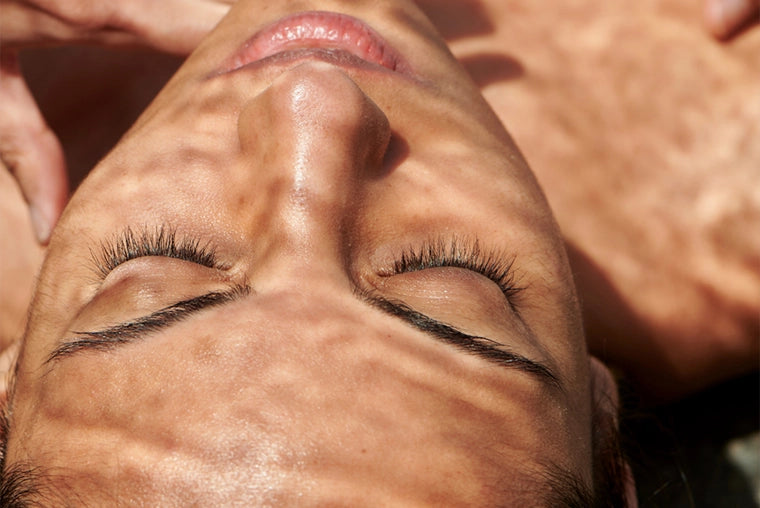Your Cart is Empty
Free shipping in Canada on orders over $150.
Free shipping in Canada on orders over $150.
Shop
Why is my skin so reactive?
September 20, 2017

HAVE YOU EVER WONDERED WHAT COULD MAKE YOUR SKIN REACT TO SKINCARE PRODUCTS?
Some clients seem to be allergic to just about everything. Not all dryness, redness, and irritation are created equal. So how can we pinpoint what’s really getting under your skin and recapture a happy glowing complexion?
Even with the best intentions if your skin is prone to allergies, when there is increased stress levels and environmental allergies it makes your skin prone to more problems. Sometimes, using a new product or a new mix of products can cause skin to have a negative reaction—even if the products are well formulated. (organic or not).
HERE ARE A FEW CULPRITS:
- Product was formulated with too many harsh or skin-aggravating ingredients that caused the negative reaction. The reaction can happen immediately or it can develop over time.
- An allergy to a specific ingredient or combination of ingredients in the formula is often to blame. This has nothing to do with the quality of a cosmetic; rather, it’s a personal reaction to an ingredient or a mix of ingredients. It's like being allergic to dogs, and it doesn’t make dogs bad for everybody.
- Using the wrong product for your skin type. For example, foaming or gel based products when you have dry, flaky skin can make your skin even drier and cause red, scaly patches. If you have oily skin, using thick, emollient products such as coconut oil even if natural can cause skin to develop more bumps and clogged pores.
- Applying too many products with potent ingredients at the same time. Even for the toughest skins will react at one point and time. LESS IS MORE.
- Using abrasive scrubs. These can cause extremely negative reactions such as micro-tears in skin’s surface that can make it more vulnerable to anything else you put on it.
- Some people just happen to have reactive and overly sensitive skin to just about anything they put on their face.
A FEW SKINGURU TIPS:
- First and foremost, make sure the products you use don’t contain the problematic ingredients that are known to cause your skin sensitivity.
- Sunscreens can be suspect if they contain synthetic sunscreen ingredients. That doesn’t make synthetic sunscreen ingredients bad, but they can be more sensitizing. The best option in this case would be to use a sunscreen that only lists titanium dioxide and/or zinc oxide at the active ingredients. (P.S. We love Cyberderm)
- Even basic, well-formulated skincare products like cleansers, toners, serums, or moisturizers can trigger negative reactions for some people.
Lots of people also think synthetic or manufactured cosmetic ingredients are bad for skin but that isn’t the case. There are good and bad natural and synthetic ingredients. An ingredient being natural doesn’t automatically make it better, safer, or gentler for skin.
Having a negative reaction to a new skincare product doesn't mean the product is badly formulated. Those bumps, redness, and other symptoms are often due to a personal reaction to an ingredient or a combination of ingredients and environmental factors.
KEEP GLOWING
JB
Leave a comment
Comments will be approved before showing up.




